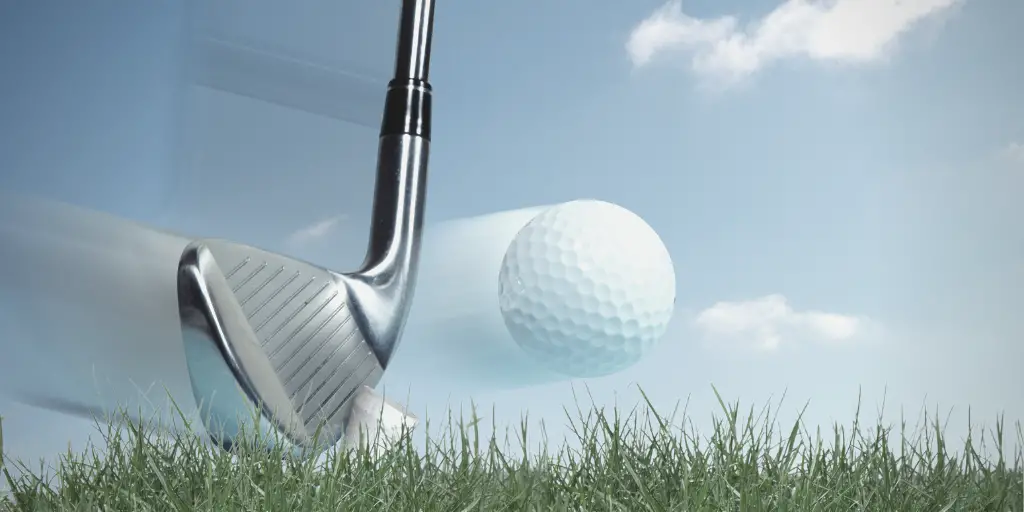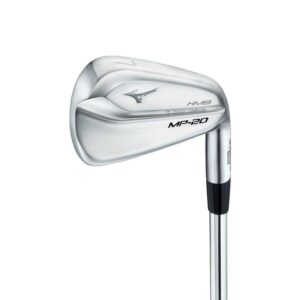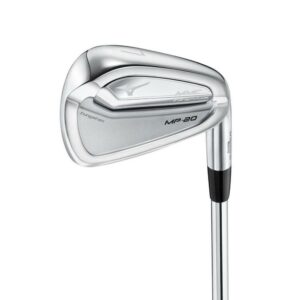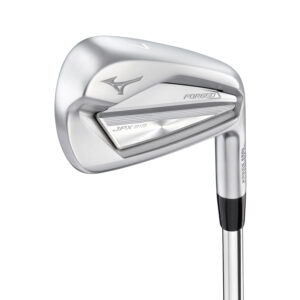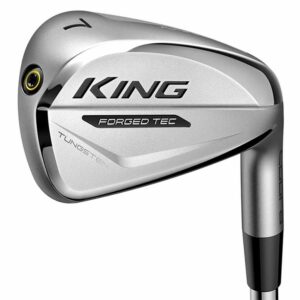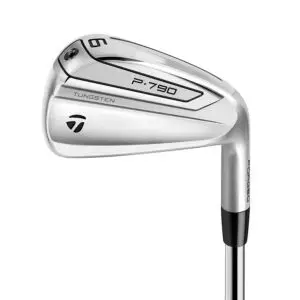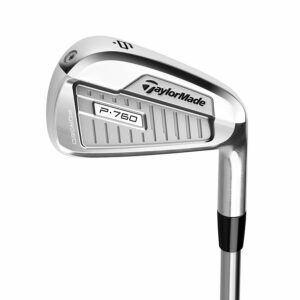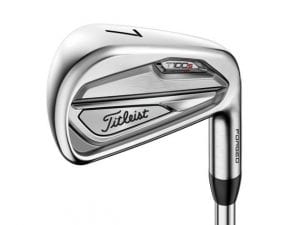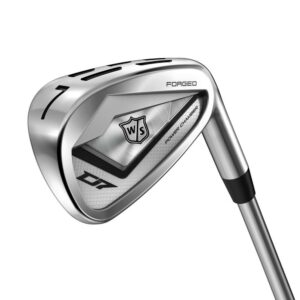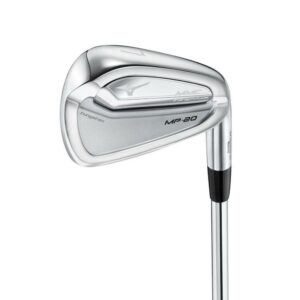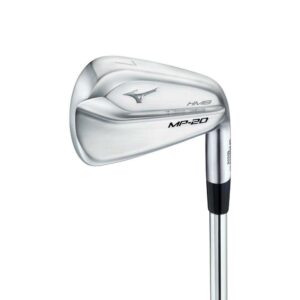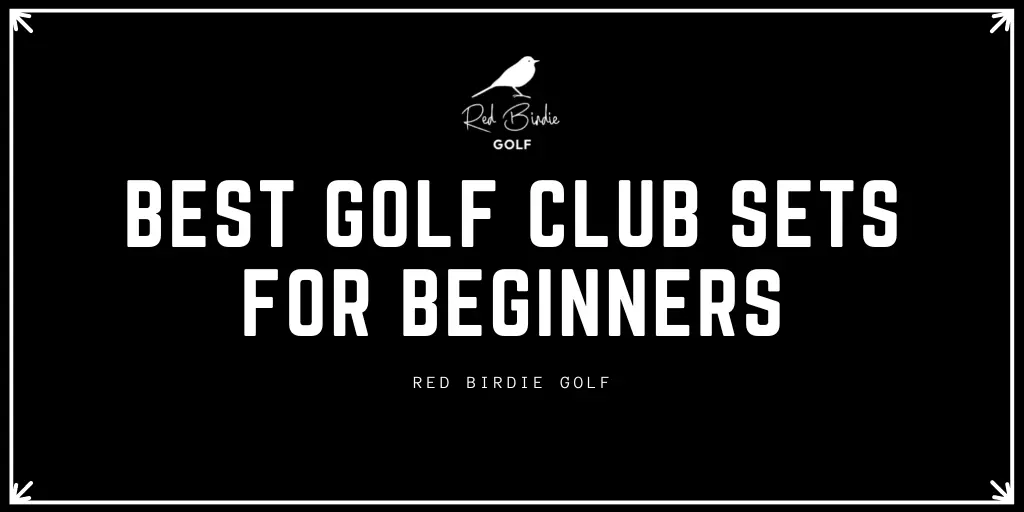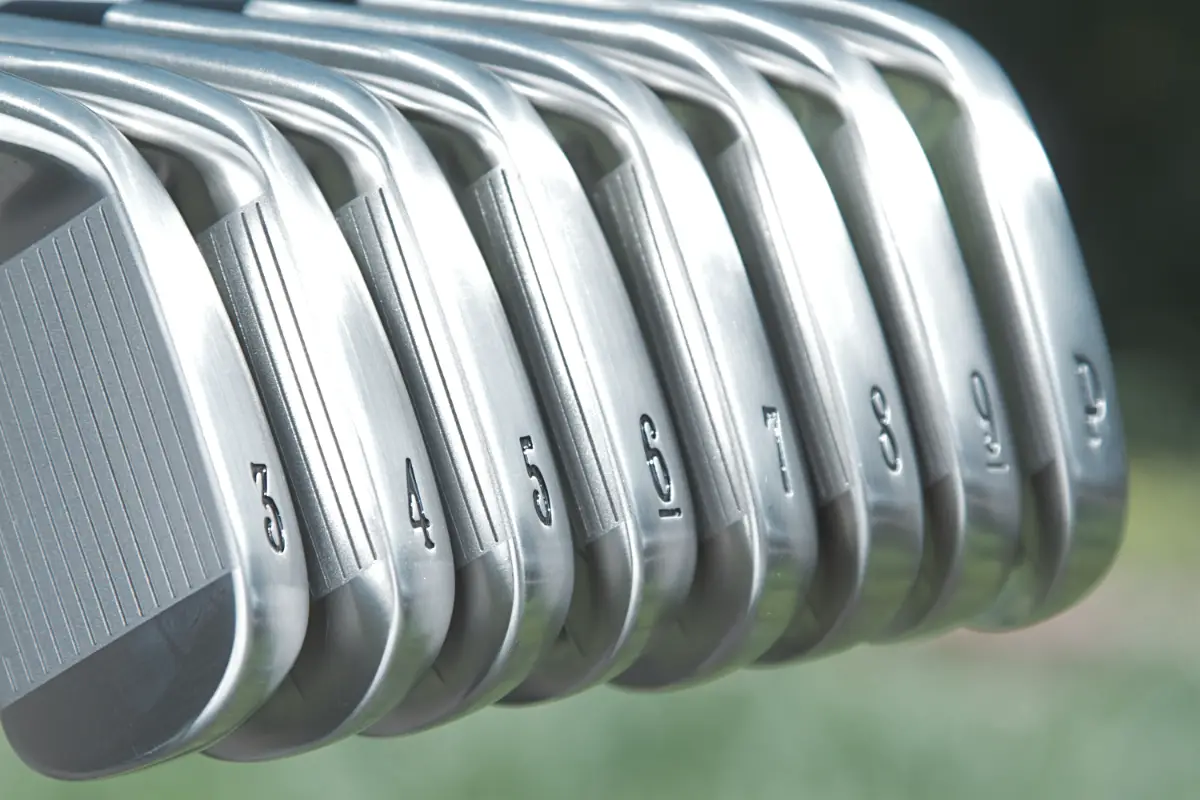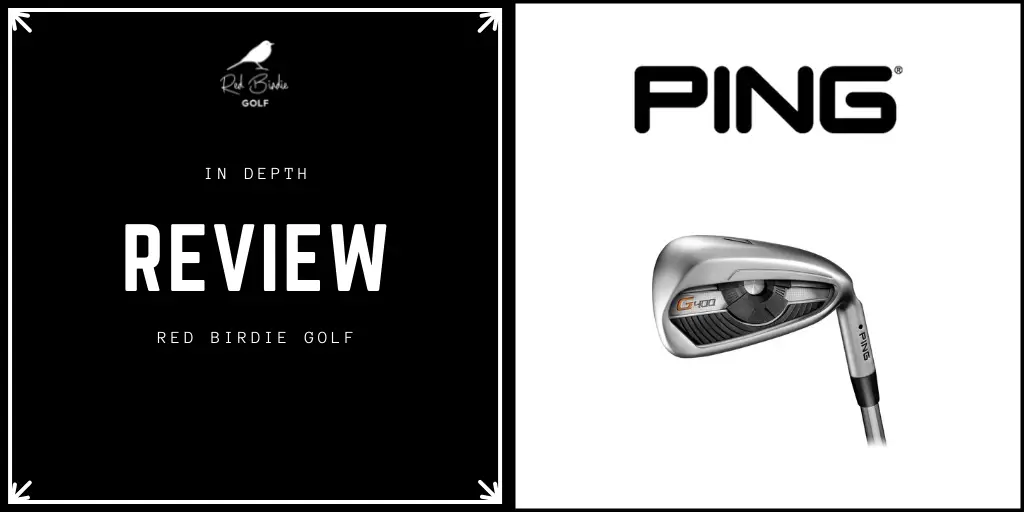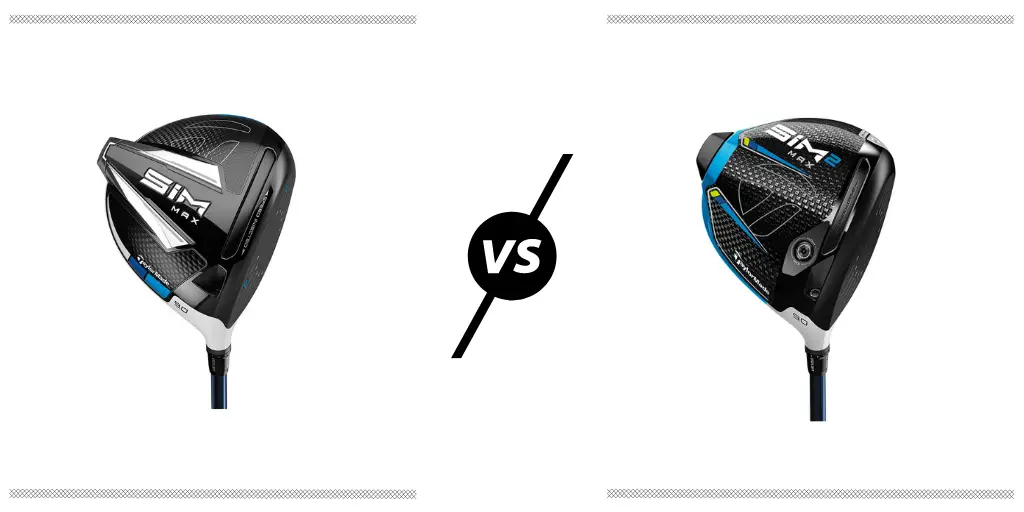***If you’re looking for the most recent reviews for 2023 gear, we will be updating this page in the summer after we’ve had a chance to review them!
If you’re in a hurry and just want to find the Best Forged Irons in 2022, here are our recommendations:
- Best Overall – Mizuno MP-20 MMC
- Best For Beginners and High Handicappers – Mizuno MP-20 HMB
- Best For Low and Mid Handicappers – Titleist T100S
- Most Affordable Option – Wilson D7 Forged
The age-old golf debate: Blades vs. Cavity Back Irons. Forged irons actually refers to the process of making an iron, but the words “forged” and “blades” became synonymous when describing irons at some point in the past. For the better part of the 20th century, forged irons were the clear choice.
In the mid-1990s, cavity back irons and all the technology involved with creating them, began showing up in the golf bags of beginners and tour pros alike. At some point, the line between cavity back and forged irons became blurred as some cavity back irons were forged and some cavity back irons began to look just like blades.
The important thing to know is that, in general, forged irons are made for low handicap players as they help players to shape their shots and get a little extra distance. The following is a list and description of the best forged irons in 2020.
We’re going to be reviewing the following forged irons:
- Mizuno MP-20 HMB
- Mizuno MP-20 MMC
- Mizuno JPX919 Forged
- Cobra King Forged TEC
- TaylorMade P790
- TaylorMade P760
- Titleist T100S
- Wilson D7 Forged
What Is a Forged Iron?
A forged iron is not actually the same thing as a blade. Forged irons are “forged” or made from a single piece of steel that is heated and then molded into shape. Forged irons are also referred to as “Blades” or “Muscle Back” irons in common golf vernacular.
A forged iron is generally suited for better players who typically make contact with the sweet spot of the iron and are less worried about mishits. Most of the weight is in the center of the clubhead which means mishits are more common but it is also easier for upper level players to shape their shot with side or back spin.
The other quality difference is that the forging process is more precise and produces less errors leading to a more consistent shot.
Who Should Use Forged Irons?
Forged irons are made for elite players who value feel, distance control, feedback, and workability over distance and forgiveness. Cavity back irons are easier to hit and far more forgiving, but you lose out on some of the subtleties of the game.
If you are a consistent ball striker who hits the ball in the center of the club for the majority of your swings, forged irons may be for you. If you are looking for more distance control and consistency, then forged irons may be for you.
If you want more feel around the green and more immediate feedback from your shots, then forged irons may be for you. If you work the ball from left to right or right to left as often as you hit the ball straight, then forged irons may be for you.
In general, better golfers with lower handicaps are the ones who benefit from playing with forged irons. This, however, is not always the case as there are quite a few tour pros and scratch golfers who prefer the distance and forgiveness of a cavity back.
If you want the game of golf to be a little easier, use cavity back irons. But if you are willing to work and reap the benefits of what forged irons can offer, you may see your game improve on a number of levels.
Advantages/Benefits Of Forged Irons
You can really only discuss the advantages and benefits of forged irons in comparison to their cavity back cousins. The following list consists of the things that set forged irons apart and make them the choice of many top notch golfers.
Quality. The forging process produces a higher quality golf club with fewer errors. In fact, small air bubbles can form in the casting process of cavity back irons leaving some inconsistencies in the clubhead.
Workability. The goal of a cavity back iron is distance and forgiveness. To make a club more forgiving and longer, less spin is necessary. If you are a golfer who likes to shape their iron shots with either a draw or a fade, you need the spin and control that a forged iron provides.
Feel. The word “feel” encompasses a lot of different things in golf. You need feel around the greens that comes from increased back spin and consistent distance. You also want the immediate feedback when your club strikes the golf ball so that you have a feel of what your swing is doing on a particular day. All the way around, a forged iron produces the feel that is missing from cavity back irons.
Spin. Though it has been mentioned before, ball spin is a part of golf. Getting that additional back spin so that your ball stops on a dime or the side spin that allows you to draw your ball around an obstacle are both important. Forged irons give you the ability to control how your ball will spin and where it will go.
Accuracy. A lot of accuracy comes from consistency, but having a true and specific sweet spot on your iron allows you to know how far your ball is going to go if you make a certain swing.
Consistency. In any sport, consistency is key. You have heard the saying, “the best ability is availability” but the best “ability” in golf is consistency. Knowing that if you swing this way, the ball will do that. If you use this club from this distance, then you know the ball will go “this” far. Because of their quality and sweet spot, a forged iron is far more consistent than a cavity back.
Are Forged Irons Really Better?
Forged irons are better for most elite players. That is evidenced by the number of tour professionals that carry forged irons in their bag compared to those who carry cavity back clubs.
Most of us “regular” golfers, however, will reap far more benefits from using cavity back irons. They are evenly weighted around the perimeter making mishits less likely. They promote a higher ball flight and less spin. They are, at least in general, cheaper.
The spin and feel around the green, the increased ability to shape your shot, and the pure distance that you get from a solid shot are great for players who find the sweet spot most of the time. Forged irons have a much better and sleeker look at setup and they are more precisely constructed than their cavity back cousins.
For the vast majority of golfers out there, cavity back irons are the way to go, but for those who have a good and consistent golf swing, you cannot beat a forged iron.
Best Forged Irons in 2022 Reviewed
Mizuno MP-20 HMB
The Mizuno MP-20 HMB ( forged irons are highly playable game improvement irons. Slated as a “hybrid” iron, they have a sleek look that is normally reserved for blades.
They are not the muscle back forged irons that you expect, but they are much more playable for mid to higher handicappers.
Pros
- Game improvement irons that look like blades.
- “Chromology Construction” refers to a highly-resilient material that allows for a a multi-thickness face and increased ball speed and distance.
- Great forgiveness for a forged iron.
- A very sleek look at address.
- Some of the best long irons on the market.
- A tungsten weight in the 3-8 irons create a higher MOI and steeper launch, and that weight is removed for your “scoring” clubs.
- Great feel for a performance iron.
Cons
- Looks like a blade in the bag, but not on the course.
- Not as long as some of the other irons on this list.
- Wedges and 9 iron are “chunkier” than most golfers prefer.
- An expensive club for game improvement irons.
Mizuno MP-20 MMC
The Mizuno Multi Material Concept (MMC) irons are known as “elite cavity irons.” What this means is that they provide much of the same distance and forgiveness you will find in cavity back irons with much of the same feel and spin that elite players crave in blades.
They are slightly larger and stronger lofted than the MB blades and are designed to be very playable. The design of these clubs includes a copper underlay for greater feel at impact and titanium forged into the back cavity for a lower center of gravity and higher MOI.
Pros
- The look and feel of a traditional Mizuno blade with much more playability across skill levels.
- A very forgiving iron for a forged club.
- The tungsten weighting in the sole of the lower irons creates a high MOI and higher launch angle.
- Caters to a very large number of golfers who will never hit pure blades well but have graduated past a traditional game improvement iron.
- The copper underlay produces that feel that Mizuno irons are known for.
- The titanium forged into the back cavity of the club produces a progressively lower center of gravity.
- They have the sleek look of a blade at address.
Cons
- Higher handicappers will probably require more forgiveness.
- They are somewhere in between blades and cavity back in terms of performance and it is hard to pinpoint where they fit and which players would benefit.
- Are an expensive club.
Mizuno JPX919 Forged
A midsize forged head with incredible distance, some forgiveness, and the feel that Mizuno irons are known for. These clubs are CNC milled from the sole up, creating one of the thinnest, fastest ball speeds on the market. During the forging process, the metal is boron infused which makes the face stronger so that it can be as thin as possible.
On top of that, the weight saved by making a thinner face finds it way toward the sole of the club giving it very high launch angles and making the club a little more forgiving than most forged irons. Mizuno has always been known as a “player’s club” but these irons will perform well across skill levels.
Pros
- One of the most consistent clubs on the market.
- One of the longest irons on the market.
- The boron infused metal allows for one of the thinnest faces out there.
- A forgiving iron for the features it offers.
- The Mizuno feel and feedback are quite obvious in this club.
- A little offset to promote straighter ball flight.
- CNC milled from the sole up.
Cons
- More difficult to shape shots than most forged irons.
- On the expensive side.
- Made more for single digit handicappers.
Cobra King Forged TEC
Compact clubheads and thin toplines are standard with “players irons” and the Cobra King Forged TEC is no different. The shape, however, does hide the hollow construction which increases the distance and forgiveness found in these clubs while maintaining their blade shape.
In short, the Cobra King Forged TEC performs well as a players club but also has some game improvement features for players of all skill levels.
Pros
- A great combination of control, distance, and feel that many low handicap golfers are looking for.
- Foam microspheres feel the hollow cavity and create a great acoustic and increased feel for the club.
- A thin club face produces top notch distance.
- A muscle back shape that conceals the hollow core.
- The hollow core improves distance and lowers the center of gravity of the club which make them slightly more playable than a traditional blade.
- Give you the option to hit draws and fades more easily than game improvement clubs.
- Great feel and spin around the green.
- A high and consistent ball flight.
- More mid range pricing than most of the other clubs on the list.
Cons
- Better golfers will get more out of these clubs.
- A chunkier top line than most blades.
TaylorMade P790
More and more club manufacturers see the benefits of both blades and cavity back irons, and many of their forged iron offerings try to incorporate the benefits of both. The TaylorMade P790 is a club that has the sleek look and feel of a blade with the distance and forgiveness of a cavity back.
It is a great club to transition from game improvement to players irons, but if you make the transition, you may very well stick with these irons for a long time.
Pros
- This is a distance iron that looks and feels like a blade.
- The “scoring” irons produce great spin and feel around the green.
- The “speed foam” behind the head increases feel and face speed.
- It looks and sounds great.
- Very high ball speed.
- A thinner forged face engineered to maximize the sweet spot and improve overall accuracy.
- Produces a very consistent distance.
- Because of the increased distance and lower center of gravity, the long irons are as good as any you will find.
Cons
- A high price point.
- The forgiveness features take away some of the shot shaping ability.
- While there are some game improvement features, this club is not suited for high handicappers.
TaylorMade P760
These irons include compact shorter irons with foam injected longer irons so that each club can perform its duties. They are TaylorMade’s mid size forged irons so that they have a similar look and feel to blades, but are slightly larger and have a thicker topline.
They also have some perimeter weighting so that they are considerably more forgiving than the other TaylorMade options on this list.
Pros
- Forgiving and long for forged irons.
- Progressive offset and design mean that the higher irons are setup for feel while the lower irons have more explosive distance.
- The hollow head in the longer irons and foam filling give them great distance and good feel as well.
- Features TaylorMade’s Speedfoam Technology.
- Consistent distance.
- More perimeter weighting produces a lot of forgiveness for a players iron.
Cons
- Pricier irons than many others on the list.
- More difficult to shape shots than most forged irons.
- While they produce decent distance, other similar clubs produce more.
Titleist T100S
Irons that were built to make the best players play even better. These irons have everything that low handicap and tour players desire with a few game improvement features that more and more players crave. These could very well become the most played irons across pro tours.
A thin topline and very slight offset combine with a compact design to give these clubs the traditional, sleek blade look but with surprising forgiveness. You could call these clubs “game improvement irons for tour players.”
Pros
- Precise distance and consistent spin rates.
- Maybe the most workability of any club on the list.
- Great feel both around the green and on your approach.
- High density tungsten in the toe and head create a progressive center of gravity so that each club performs at an optimal level.
- The tungsten is fused into the steel during the forging process so that the club feels solid at impact.
- Interacts with the turf as well or better than any iron out there.
Cons
- Built for low handicap players.
- Not as long as some of the other clubs on the list.
- The small profile of the longer irons can be intimidating.
- Priced on the high end.
Wilson D7 Forged
The Wilson D7 forged irons combine tour level feel and shape with game improvement type distance. These forged irons are compact with a low center of gravity so that your shots get off of the ground well. Even with the compact shape, the clubs are very forgiving for a set of forged irons.
The Wilson D7 Forged are an underrated set of clubs both because of the price and the brand, but they produce some of the best results in the forged iron market. The 2 most important thing in iron play is distance and accuracy, and you will find plenty of both.
Pros
- Great distance for forged clubs.
- Power holes in the soles of the iron make Wilson irons both recognizable and add a lot of flex and speed at impact.
- An underrated set of irons.
- Easily the least expensive option on this list.
- These clubs are very accurate and very consistent.
- Low spin creates straighter shots and more distance.
- Keeps a lot of the same features as the D7, but the forging process adds quality and feel that was not there before.
Cons
- The workability is not there like many of the other irons on this list.
- Lacks the “wow” factor of some of the higher end brands.
- Not as sleek and pleasing at address as some of the other forged irons.
Our Choice
Best Overall Choice
There is just something about the Mizuno forging process that produces great feel, acoustics, and control. With that said, our choice for best overall forged irons is the Mizuno MP-20 MMC. These clubs have a low center of gravity so that the ball launches at impact, but it is still easy to shape a fade or a draw. The feel and spin around the green with the higher irons is great, and the immediate feedback and feel at impact is as good as any iron out there.
These irons are also a progressive set which means that each iron is setup with the right weighting and features for its loft. They are forgiving enough for mid handicappers, but they contain all of the features that a top player could want.
Best For Beginners and High Handicappers
Because of their game improvement features, the Mizuno MP-20 HMB are our choice for best forged irons for beginners and high handicappers.
Best For Low and Mid Handicappers
The Titleist T100S cater to tour players and low handicappers and are our choice for best players irons on the list.
Most Affordable Option
The Wilson D7 Forged are the most affordable option, and it is not really close.

